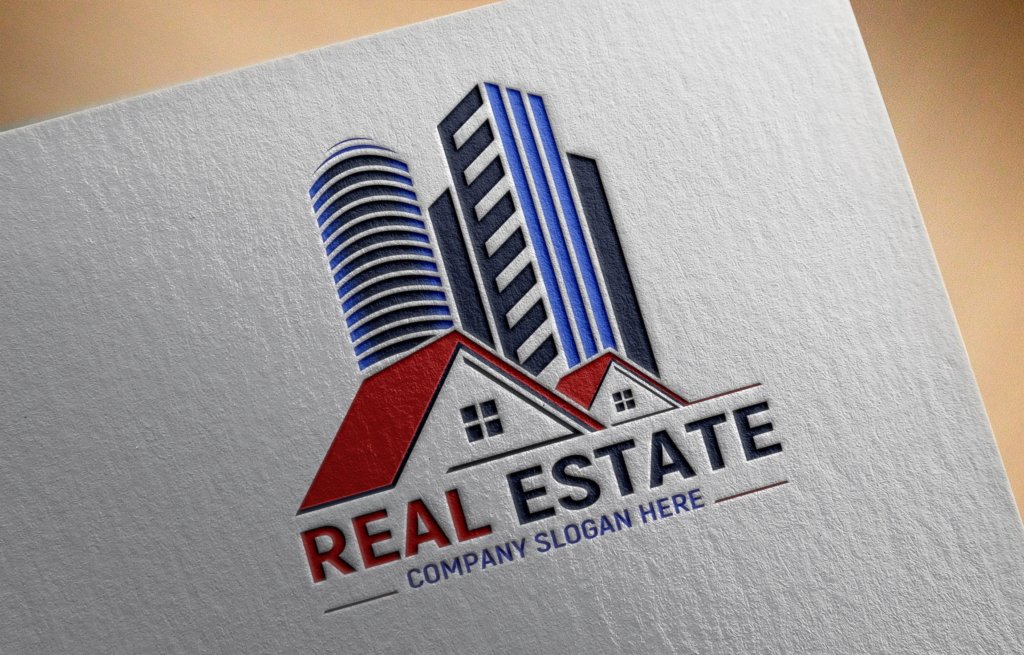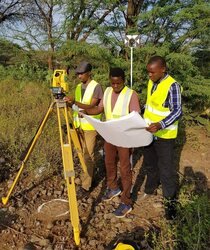
Kenya’s real estate sector is one of the fastest-growing in East Africa, driven by urbanization, population growth, and rising demand for housing. However, despite its potential, the industry faces several persistent challenges that affect developers, investors, and homebuyers alike.
From legal complexities to high construction costs, understanding these obstacles can help you make smarter decisions—whether you’re buying property, investing, or building your own business.
In this guide, we’ll explore:
- The top challenges facing real estate in Kenya
- How they impact buyers, sellers, and developers
- And what solutions are emerging to address them
Let’s dive in!
🔥 Top 10 Challenges Facing Real Estate in Kenya
Here are the most pressing issues currently shaping the Kenyan real estate market:
1. Land Ownership and Title Verification Issues
What’s Happening:
Multiple ownership claims, forged title deeds, and unclear land records continue to deter investment.
Why It’s a Problem:
- Legal disputes delay transactions
- Increases risk for buyers and financiers
- Foreign investors often avoid unverified land
📌 Solution: Digitization of land records via the Registrar of Titles and blockchain-based verification platforms.

2. High Cost of Construction Materials
What’s Happening:
The cost of cement, steel, and timber has risen significantly due to inflation and supply chain disruptions.
Why It’s a Problem:
- Drives up house prices
- Reduces affordability for middle-income earners
- Slows down project timelines
📊 Inflation-driven price increases (2023–2025):
- Cement: +25%
- Steel: +30%
- Timber: +20%
📌 Solution: Use of alternative materials like interlocking bricks and prefabricated panels.
3. Limited Access to Affordable Financing
What’s Happening:
Mortgage penetration remains low, and many banks offer only short-term loans at high interest rates.
Why It’s a Problem:
- Makes homeownership difficult for first-time buyers
- Discourages large-scale development
- Limits access to credit for small developers
| Bank | Avg. Mortgage Rate (2025) |
|---|---|
| Housing Finance Kenya | 13% – 16% p.a. |
| Co-operative Bank | 12% – 14% p.a. |
| KMRC Partner Banks | ~12% p.a. |
📌 Solution: Expansion of government-backed affordable housing loans under the Big Four Agenda .
4. Lengthy Legal and Bureaucratic Processes
What’s Happening:
Property registration, transfer, and subdivision processes are often slow and complex.
Why It’s a Problem:
- Delays projects and sales
- Increases transaction costs
- Deters foreign investment
📌 Solution: Ongoing digitization of land records and automation of approvals through the National Land Commission (NLC) .
5. Unregulated Land Grabbing and Fraud
What’s Happening:
Illegal land grabbing and fraudulent deals remain common, especially in peri-urban areas.
Why It’s a Problem:
- Leads to court cases and stalled developments
- Damages investor confidence
- Displaces genuine landowners
📌 Solution: Increased enforcement by land control boards and public awareness campaigns.
6. Supply-Demand Imbalance
What’s Happening:
There’s a housing deficit of over 2 million units , particularly in urban centers.
Why It’s a Problem:
- Prices rise faster than incomes
- Informal settlements expand
- Rental costs increase disproportionately
📌 Solution: Partnerships between private developers and government under affordable housing programs .
7. Informal Settlements and Lack of Planning
What’s Happening:
Over 60% of Nairobi residents live in informal settlements, making urban planning difficult.
Why It’s a Problem:
- Limits formal development opportunities
- Increases pressure on infrastructure
- Reduces tax revenue from undeveloped land
📌 Solution: Government-led resettlement programs and slum upgrading initiatives.
8. Inadequate Infrastructure in Emerging Areas
What’s Happening:
New developments in areas like Naivasha and Athi River face delays due to poor roads, water, and electricity access.
Why It’s a Problem:
- Increases developer costs
- Lowers buyer interest
- Slows down market expansion
📌 Solution: Infrastructure investments under the Standard Gauge Railway (SGR) and road expansion projects.
9. Lack of Standardized Valuation Systems
What’s Happening:
Property valuations vary widely across agencies and regions, leading to inconsistent pricing.
Why It’s a Problem:
- Confuses buyers and investors
- Hinders mortgage lending
- Leads to undervalued or overvalued properties
📌 Solution: Strengthening standards at the Institute of Surveyors of Kenya (ISK) and greater use of digital valuation tools.
10. Slow Adoption of Technology
What’s Happening:
While some firms are embracing digital tools, many still rely on outdated methods for listings, marketing, and financing.
Why It’s a Problem:
- Reduces transparency and efficiency
- Limits reach to younger, tech-savvy buyers
- Slows down transaction speed
📌 Solution: Growth of PropTech platforms like Zameen Africa , Jengo Real Estate , and Eneza Investments .
📊 Comparative Table: Real Estate Challenges & Their Impact
| Challenge | Impact on Market | Who It Affects Most |
|---|---|---|
| Land fraud & title disputes | Delays transactions, reduces trust | Buyers, investors |
| High construction costs | Increases property prices | Developers, middle-income buyers |
| Limited financing options | Reduces access to housing | First-time buyers, SACCO members |
| Lengthy legal processes | Slows down development | Developers, financial institutions |
| Unplanned settlements | Limits formal growth | Urban planners, local governments |
| Poor infrastructure | Reduces land value | Investors, developers |
| Inconsistent valuations | Causes confusion | Buyers, lenders |
| Lack of technology adoption | Reduces transparency | Agents, young buyers |
| Regulatory gaps in crowdfunding | Limits small investor access | Retail investors, startups |
| Environmental and climate risks | Affects long-term value | Coastal property owners, insurers |
🚧 Regional Breakdown: Location-Specific Challenges
| Region | Key Challenge |
|---|---|
| Nairobi | Oversupply in CBD vs. undersupply in suburbs |
| Mombasa | Rising sea levels threatening coastal developments |
| Eldoret | Limited utilities and water supply in new estates |
| Konza | Unclear zoning laws affecting land banking |
| Ruaka | Rapid growth outpacing infrastructure |
| Athi River | Industrial encroachment into residential zones |
| Diani- Coast | Foreign ownership restrictions and environmental regulations |
📈 Emerging Solutions and Industry Responses
Despite the challenges, the real estate sector is adapting:
| Solution | Description |
|---|---|
| Affordable Housing Program | Government initiative to deliver 500,000 homes by 2027 |
| Digital Platforms | Online listing sites and virtual tours streamline transactions |
| Crowdfunding & REITs | New ways to invest without owning full property |
| Green Building Initiatives | Lower-cost, sustainable construction models |
| Smart Cities Development | Planned urban growth in Tatu City and Konza Technopolis |
| Blockchain for Land Records | Improving transparency and reducing fraud |
🧭 How to Navigate These Challenges as a Buyer or Investor
Here are practical tips to protect yourself and make informed decisions:
- Verify Land Ownership Thoroughly
- Hire a licensed surveyor and advocate
- Check with the Registrar of Titles
- Work with ISK-Certified Brokers
- Avoid unlicensed agents offering “off-market” deals
- Use Digital Platforms
- Platforms like Zameen Africa provide verified listings
- Explore Affordable Housing Schemes
- Through Jamii Bora , Stima Housing , and Home Afrika
- Consider Crowdfunding and REITs
- For lower-risk exposure to property markets
- Monitor Interest Rates
- Opt for fixed-rate mortgages if inflation is expected to rise
- Invest in Regulated Zones
- Focus on areas with clear zoning and future infrastructure plans
🎓 Career Opportunities Despite the Challenges
Even with current hurdles, the real estate sector offers growing job opportunities:
| Role | Why It’s Growing |
|---|---|
| Real Estate Agent | Demand for professional guidance remains high |
| Property Valuer | Needed for accurate, transparent valuations |
| Mortgage Consultant | More buyers need financing support |
| Land Surveyor | Critical for title verification and dispute resolution |
| PropTech Developer | Tech is transforming how real estate works |
| Green Building Consultant | Eco-friendly design is gaining traction |
🎓 Many universities now offer courses tailored to modern real estate needs.
📉 Future Outlook: Overcoming the Obstacles
While the challenges facing real estate in Kenya are significant, the industry is evolving quickly.
With increased government support , technology integration , and policy reforms , many of these barriers are being addressed.
As a result:
- Transparency is improving
- Affordability is increasing
- Investment opportunities are expanding beyond Nairobi
🧾 Conclusion
Kenya’s real estate sector holds immense promise—but it also comes with unique challenges that require careful navigation.
From land fraud and high construction costs to limited financing and bureaucratic delays, understanding these issues will help you make better investment decisions and avoid costly mistakes.
Whether you’re a buyer, developer, or investor, staying informed about these challenges—and their solutions—is essential to thriving in Kenya’s property market.
❓ Frequently Asked Questions (FAQs)
Q1: What are the biggest challenges in the Kenyan real estate market?
A: Land fraud, high construction costs, lengthy legal processes, and limited financing are among the top challenges.
Q2: Can foreigners invest in real estate in Kenya safely?
A: Yes—if they work with certified brokers and lease land legally for up to 99 years.
Q3: Are there solutions to Kenya’s housing deficit?
A: Yes—through the Big Four Affordable Housing Program and partnerships with SACCOs and developers.
Q4: How do I verify land ownership in Kenya?
A: Always hire a licensed surveyor and lawyer to check title deeds at the Registrar of Titles .
Q5: Are there alternatives to traditional real estate investment in Kenya?
A: Yes! You can invest through crowdfunding platforms and REITs .

Join The Discussion